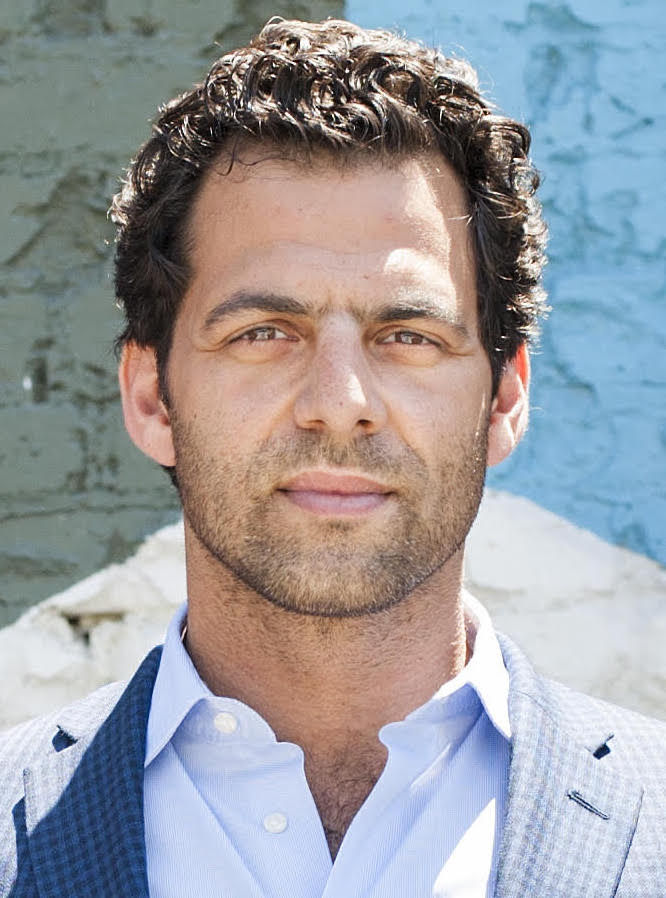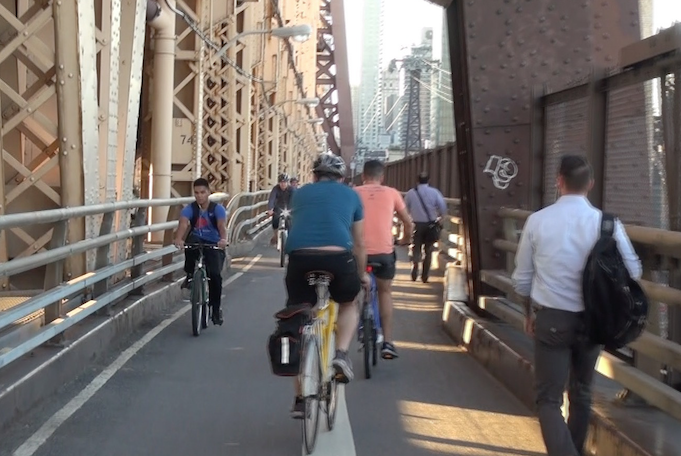Coronavirus? More like car-owner virus.
Transportation Alternatives Executive Director Danny Harris said on Monday that Mayor de Blasio's response to the growing contagion would only cause more people to use cars — causing the attendant congestion and death — if the city doesn't actually do anything to encourage cycling and walking.
The mayor had famously urged New Yorkers to "bike or walk to work if you can" on Monday as a way of reducing contact with possibly infected people on the subways and buses, but Harris said the mayor's message "stops short of making bicycling safe and accessible for all."

The result? "We will end up with more people opting for cars, and congestion that paralyzes this city," Harris said.
As such, Transportation Alternatives called for the mayor to immediately implement changes to "make biking to work a possibility for more New Yorkers," including demands to:
- create a zero tolerance policy on vehicles — city-owned, private, or commercial — blocking bike lanes, and cease any cycling-specific NYPD ticket stings. (The mayor said earlier this year that he would create a Vision Zero Unit within the NYPD, but no details of that unit, or its efforts, have been provided.)
- build pop-up bike lanes, like those deployed during the UN General Assembly last September, "since the Green Wave plan can’t be implemented overnight," Harris said.
- quickly reconfigure key East River crossings, including dedicated, separated cycling paths on the Brooklyn and Queensboro bridges. The Queensboro Bridge is especially crowded because pedestrians and cyclists share a single path on the north side of the bridge. The numbers of walkers and cyclists were increasing on that span even before the current crisis.
- fast-track permitting and construction of sidewalk and on-street bike parking, and require that office buildings allow employees to enter with bikes
- expedite the expansion of Citi Bike in underserved neighborhoods, roll out more stations and bike valets in Manhattan’s Central Business District, and subsidize a Citi Bike discount program to incentivize new riders.
Harris said he was motivated by the mayor's use of "if you can" in his message to New Yorkers.
“'If you can' is the key phrase," Harris said. "We know the primary reason New Yorkers choose not to bike is that they fear sharing streets with multi-ton motorized vehicles, followed by a lack of secure bicycle parking. ... There are huge swathes of our city where there are no safe, dedicated routes for cycling. Add to that, half of Brooklyn, most of Queens, and all of the Bronx and Staten Island are left out of the city’s bike share system entirely."
Harris concluded by saying his organization remains "in support of keeping New York moving amidst this health crisis and are ready to help in any way we can."
City Hall spokeswoman Olivia Lapeyrolerie said, "This Administration has taken many many steps to make New York City more bike friendly, and will continue to do so as outlined in Vision Zero." Streetsblog followed up with questions about the specific measures outlined by Harris. We will update this story if we hear back.






